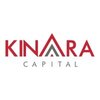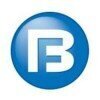Filter interviews by
BA Continuum Team Member Interview Questions and Answers
7 Interview questions
Rules of deposit refer to guidelines and regulations set by financial institutions for depositing money into accounts.
Deposits must be made in accordance with the bank's operating hours.
Deposits may be subject to holds for verification purposes.
Deposits over a certain amount may require additional documentation.
Deposits made through ATMs may have different rules compared to in-person deposits.
Investment banking involves providing financial advice and services to corporations, governments, and other institutions.
Investment banks help clients raise capital through underwriting and issuing securities.
They also provide advisory services for mergers and acquisitions, restructuring, and other financial transactions.
Investment bankers work closely with clients to understand their financial needs and develop c...
Retail banking refers to the services provided by banks to individual customers, including deposit accounts, loans, and credit cards.
Retail banking focuses on serving individual customers rather than businesses or institutions.
It includes various financial products and services such as savings accounts, checking accounts, personal loans, mortgages, and credit cards.
Retail banks offer convenience and accessibility ...
A counterfeit check is a fake check that is not issued by a legitimate bank or financial institution.
Counterfeit checks often have misspelled words or incorrect information on them.
They may also have a different font or color than genuine checks.
The check may be made out for an unusual amount or have an unusual memo line.
The paper may feel different or have a different texture than real checks.
If you suspect a che...
Fraud is a deliberate deception to secure unfair or unlawful gain. Risk can be mitigated by implementing strong internal controls.
Fraud can take many forms such as embezzlement, identity theft, and false billing.
To mitigate risk, companies can implement internal controls such as segregation of duties, regular audits, and background checks.
Training employees on fraud prevention and detection can also help mitigate ...
The mortgage cycle of a loan refers to the process from application to closing and repayment.
Application: Borrower submits application and required documents.
Underwriting: Lender evaluates borrower's creditworthiness and property value.
Approval: Loan is approved or denied based on underwriting.
Closing: Borrower signs loan documents and funds are disbursed.
Repayment: Borrower makes monthly payments until loan is pa...
Moderating a mortgage involves adjusting terms to make payments more manageable for the borrower.
Negotiate with lender for lower interest rates or longer repayment period
Consider refinancing to lower monthly payments
Explore government assistance programs for mortgage relief
BA Continuum Team Member Interview Experiences
15 interviews found
I appeared for an interview in Jan 2025, where I was asked the following questions.
- Q1. Golden rules of a accounting
- Q2. Basic questions like tell me about yourself, strength and weakness, where do you see yourself in 5 years and so on if in case you are a freshers
- Q3. Details In your resume they'll ask you questions based on what you've put in your resume (fresher)
Interview Preparation Tips
(2 Questions)
- Q1. Tell me about your self
- Ans.
I am a dedicated team member with strong communication skills and a passion for helping others succeed.
Experienced in working collaboratively with team members to achieve common goals
Strong communication skills, both written and verbal
Passionate about providing excellent customer service
Proven track record of meeting deadlines and exceeding expectations
- Q2. Do you have any knowledge about kyc
- Ans.
Yes, KYC stands for Know Your Customer and refers to the process of verifying the identity of customers.
KYC is a regulatory requirement in many industries, including banking and finance.
It involves collecting personal information from customers to prevent fraud and money laundering.
Examples of KYC documents include government-issued IDs, proof of address, and financial statements.
I applied via Campus Placement and was interviewed before Jan 2024. There was 1 interview round.
(2 Questions)
- Q1. Tell me about yourself.
- Ans.
I am a dedicated team member with strong communication skills and a passion for helping others succeed.
Experienced in working collaboratively with team members to achieve common goals
Excellent communication skills, both written and verbal
Strong problem-solving abilities and ability to adapt to changing situations
Passionate about providing exceptional customer service
Previous experience in retail and customer service ro...
- Q2. What are your strengths?
- Ans.
My strengths include strong communication skills, attention to detail, and the ability to work well in a team.
Strong communication skills - able to effectively convey information and ideas
Attention to detail - meticulous in completing tasks accurately
Teamwork - collaborate well with others to achieve common goals
I applied via Campus Placement and was interviewed before Oct 2023. There were 3 interview rounds.
General knowledge regarding banking sector
(2 Questions)
- Q1. Are eligible for flexible shift timings
- Ans.
I am fully eligible for flexible shift timings, accommodating various schedules to meet team and personal needs.
I have experience working in environments with varying shift patterns, such as retail and hospitality.
I can adjust my availability based on team requirements, ensuring coverage during peak hours.
For example, I previously worked night shifts while managing daytime commitments, demonstrating my adaptability.
- Q2. How do you know about the company
(2 Questions)
- Q1. Mortgage cycle of any loan
- Ans.
The mortgage cycle of a loan refers to the process from application to closing and repayment.
Application: Borrower submits application and required documents.
Underwriting: Lender evaluates borrower's creditworthiness and property value.
Approval: Loan is approved or denied based on underwriting.
Closing: Borrower signs loan documents and funds are disbursed.
Repayment: Borrower makes monthly payments until loan is paid of...
- Q2. How to moderate the mortgage
- Ans.
Moderating a mortgage involves adjusting terms to make payments more manageable for the borrower.
Negotiate with lender for lower interest rates or longer repayment period
Consider refinancing to lower monthly payments
Explore government assistance programs for mortgage relief
I appeared for an interview before Feb 2024.
(1 Question)
- Q1. What motivates you to apply for this position?
- Ans.
I am motivated to apply for this position because of my passion for customer service and desire to work in a team-oriented environment.
Passion for customer service
Desire to work in a team-oriented environment
Opportunity to learn and grow within the company
I applied via Campus Placement and was interviewed before Apr 2023. There was 1 interview round.
(1 Question)
- Q1. What are the rules of deposit
- Ans.
Rules of deposit refer to guidelines and regulations set by financial institutions for depositing money into accounts.
Deposits must be made in accordance with the bank's operating hours.
Deposits may be subject to holds for verification purposes.
Deposits over a certain amount may require additional documentation.
Deposits made through ATMs may have different rules compared to in-person deposits.
I applied via Recruitment Consulltant and was interviewed before Apr 2023. There were 2 interview rounds.
Question on capital market
(2 Questions)
- Q1. General introduction
- Q2. Introduce yourself
I applied via Recruitment Consulltant and was interviewed before Oct 2022. There were 3 interview rounds.

(1 Question)
- Q1. Tell me about yourself
(1 Question)
- Q1. Operation questions
Interview Preparation Tips
I applied via Campus Placement and was interviewed before May 2022. There were 2 interview rounds.

(2 Questions)
- Q1. What is fraud? How can you mitigate risk
- Ans.
Fraud is a deliberate deception to secure unfair or unlawful gain. Risk can be mitigated by implementing strong internal controls.
Fraud can take many forms such as embezzlement, identity theft, and false billing.
To mitigate risk, companies can implement internal controls such as segregation of duties, regular audits, and background checks.
Training employees on fraud prevention and detection can also help mitigate risk.
...
- Q2. What is a counterfeit check? How can you identify?
- Ans.
A counterfeit check is a fake check that is not issued by a legitimate bank or financial institution.
Counterfeit checks often have misspelled words or incorrect information on them.
They may also have a different font or color than genuine checks.
The check may be made out for an unusual amount or have an unusual memo line.
The paper may feel different or have a different texture than real checks.
If you suspect a check is...
Interview Preparation Tips
I applied via Referral and was interviewed before Aug 2022. There were 3 interview rounds.

(1 Question)
- Q1. Basic questions and personal information
(1 Question)
- Q1. My experience,communication skills and education and some questions related to process.
Interview Preparation Tips
Top trending discussions






BA Continuum Interview FAQs
The duration of BA Continuum Team Member interview process can vary, but typically it takes about less than 2 weeks to complete.
Tell us how to improve this page.
BA Continuum Interviews By Designations
- BA Continuum Team Member Interview Questions
- BA Continuum Team Lead Interview Questions
- BA Continuum Analyst Interview Questions
- BA Continuum Senior Analyst Interview Questions
- BA Continuum Senior Technical Associate Interview Questions
- BA Continuum Team Developer Interview Questions
- BA Continuum Software Engineer Interview Questions
- BA Continuum Assistant Manager Interview Questions
- Show more
Overall Interview Experience Rating
based on 11 interview experiences
Difficulty level
Duration
Interview Questions from Similar Companies
BA Continuum Team Member Reviews and Ratings
based on 86 reviews
Rating in categories
|
Team Lead
772
salaries
| ₹8 L/yr - ₹14 L/yr |
|
Team Developer
765
salaries
| ₹4.3 L/yr - ₹9.6 L/yr |
|
Assistant Manager
704
salaries
| ₹12 L/yr - ₹21.7 L/yr |
|
Senior Software Engineer
458
salaries
| ₹11.7 L/yr - ₹27.5 L/yr |
|
Software Engineer
452
salaries
| ₹11.1 L/yr - ₹23.5 L/yr |

Bank of America

Home Credit Finance

Sammaan Capital Limited

Hero FinCorp
- Home >
- Interviews >
- BA Continuum Interview Questions
















